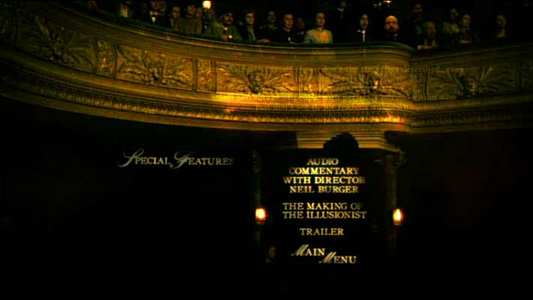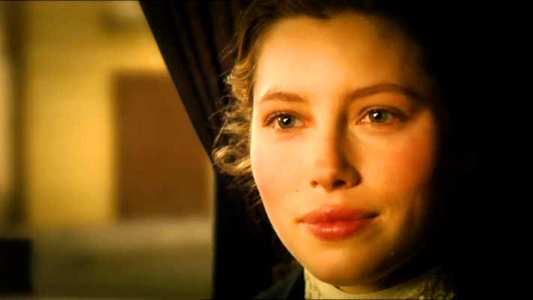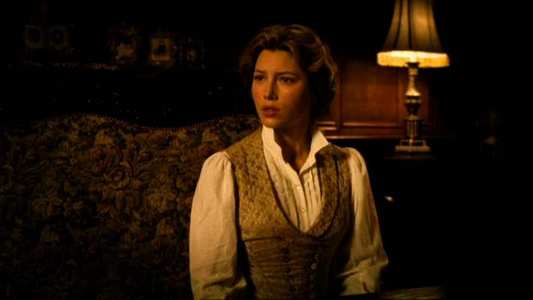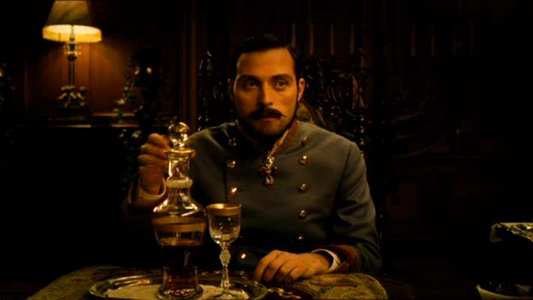Review of Illusionist, The
Introduction
"It`s not as good as The Prestige you know." That was the quote that practically defined this film last year. The director Christopher Nolan is on a high right now, everything he touches turns to box office gold, and in comparison, any film is going to come off second best. The Illusionist also suffers from that serendipitous coincidence that strikes Hollywood in particular, in that at any one time, more than one film about a popular subject is in production. Some are quick to shout `Copycat!" However, given the time it takes for a film to get from script to celluloid, it`s more one of those weird happenstances. So we get two Robin Hood films in a certain year, three Christopher Columbus films in another, a sudden vogue for sword and sandal epics, and two Truman Capote biopics even. On reflection, it isn`t so strange. In a Hollywood where focus groups and clipboards outweigh creativity, it isn`t surprising that similar demographics would tick the same boxes at the same time. Anyway, I won`t be telling you that The Prestige is better than The Illusionist. I haven`t seen The Prestige yet, so I can evaluate this film on its own merits.
Eisenheim the Illusionist comes to Vienna in 1900 and brings his spectacular brand of magic to entertain the crowds. His defiance of the laws of nature attracts mass audiences, as well as the eye of Crown Prince Leopold. Leopold, a rational man of science is sceptical of the magician, but his fiancée Sophie is happy to volunteer for one of Eisenheim`s illusions. But there is more to this than just magic. Years previously, the lowborn Eisenheim and the aristocratic Sophie were childhood sweethearts, and now that she is engaged to the brutal and ambitious prince, Eisenheim has returned to `rescue` her. Leopold has plans for his alliance with Sophie`s family, and isn`t willing to be slighted by this upstart magician. He assigns Chief Inspector Uhl to investigate and discredit Eisenheim.

Video
The Illusionist gets a 1.85:1 anamorphic transfer, and given that it is such a recent film, there are no immediate problems to mention. The image is clear and free of artefacts. The period sepia look comes across well, and the lavish set design and the Prague locations stand in well for turn of the century Vienna. As the film progresses however, flaws become apparent. There is the occasional moment of softness, and darker scenes are prone to ghosting. Given that there are a lot of such scenes, it can be distracting at times.

Audio
This isn`t a particularly surround heavy film, but the DD 5.1 English track has an immediate impact with the opening scene. A silent theatre, limelight flickering and the uneasy bated breath of a discomfited audience immediately establish the film`s slightly eerie and edgy ambience, and that subtle sound design continues through the movie. The Philip Glass score adds to that, and the overall effect is impressive. The dialogue, give or take the odd accent, is clear throughout, and HOH English subtitles are available should you need them.

Features
The disc autoplays with trailers for Amazing Grace, The Painted Veil, and The Hoax, as well as an advert for a chocolate confection. These are all skippable. I don`t know about you, but if I want an advert for food with my movie, I`ll watch the blasted thing on television.
Given the subject matter, you`d expect eerie animated menus, but these are a prime example of how not to design them. It may be magic, but obscuring the menu headings isn`t going to help anyone, and scene selection shouldn`t be as hard to find as an Easter Egg.
Speaking of Eggs, there is one on this disc. Find it, and you`ll find some tricks to screw up while attempting to get your friends to buy a round in the pub.
Most prominent among the extras is the audio commentary from director Neil Burger. He talks about adapting the short story, and pierces the illusion of the movie-making process. It`s a nice interesting commentary, a little gappy and a little dry, but par for the course for these types of tracks.
The Making Of The Illusionist lasts 15 minutes, and offers interviews and behind the scenes snippets of the cast and crew. It`s your standard EPK guff, which Rufus Sewell notes to comic effect. Oddly the Viennese accents sound worse in the b-roll footage than they do in the film.
The theatrical trailer rounds things off. None of the extras are subtitled.

Conclusion
It`s not as good as The Sting… Well, I had to compare it to something, and with a dearth of magician movies springing to mind, I realised that The Illusionist is an ideal con movie. Eisenheim wants something, and he uses his considerable talents in misdirection and illusion to get it from the mark. The mark in this case is Crown Prince Leopold, and like all such targets he`s a thoroughly disagreeable chap. Like all good con tricks, there has to be an added sense of peril, which is where Police Inspector Uhl comes in, hot on the trail of the magician, trying to fathom his secrets. And like all such movies, we revel in how Eisenheim pulls off this amazing feat against all odds, and the while the big reveal at the end of the film may fill in all the blanks, it is the journey to that point that entertains.
Where The Illusionist excels is in terms of character and history. The film looks splendid, it captures a moment early in the twentieth century when the imperialist monarchies were in conflict with socialist democratic movements. I was struck by `the corridor of death`, a corridor filled with thousands upon thousands of hunting trophies, used to establish the cold-hearted character of Leopold. It`s mentioned in the commentary that the corridor is real, and the trophies belonged to Archduke Franz Ferdinand, the fellow who died in Sarajevo and started the First World War. With that sort of verisimilitude to the film, the larger picture behind the story becomes poignant. The societal divide is what motivates the story, and the realism of the separation of aristocracy and peasantry echoes through the film. Eisenheim and Sophie were kept apart because of their class. The aristocratic Sophie couldn`t muddy herself with the son of a cabinetmaker, as she was destined for royalty. When Eisenheim returns to Vienna, his magic is a threat to the Crown Prince, not just because it promotes supernaturalism over rationality, but because Eisenheim can electrify the people where the Prince cannot. That Eisenheim has designs on Leopold`s fiancée only makes it personal.
The writing and the characters shine in this film. Rufus Sewell as Leopold is outstanding. A rational, intelligent man whose desire for power is thwarted by having to wait his turn for the throne, it`s no surprise that he wishes to hasten his ascension. Initially it is hearsay and rumour that attest to his brutality, when we meet him he appears more cold and calculating than anything else. It`s just that the more he locks horns with Eisenheim, and the more the situation spins out of his control, that he becomes the man that he`s reputed to be. Eisenheim is the master showman of course, and Edward Norton plays the role with panache. This isn`t one of the neon magicians that we get today. The artists of old played to a more educated audience, and Eisenheim`s act is a blending of illusion and philosophy that actually had me interested in magic for once (Paul Daniels and David Copperfield have a lot to answer for). The most outstanding character has to be Chief Inspector Uhl, as played by Paul Giamatti. Uhl is another rational man, caught between a rock and a hard place. Another example of the class situation, the son of a butcher who has risen to public office is now courted by the Crown Prince to be an ally. Uhl is ambitious and is aware that by accepting the Prince`s shilling he has become corrupt. He is also aware of how dangerous the Prince is, and on the other hand his natural sympathies lie with Eisenheim. Still he has to act for his prince against the magician, yet all the while there is a niggling remnant of justice in his character. This could so easily have been a slimy, two faced portrayal, but Giamatti makes him likeable and even sympathetic.
The story is an elegant but simple con trick, the characters are richly drawn and compelling, the writing is intelligent, and the historical setting is just the icing on the cake. The Illusionist is a splendid film that is well worth saving a spot on your DVD shelf for.
Your Opinions and Comments
Be the first to post a comment!